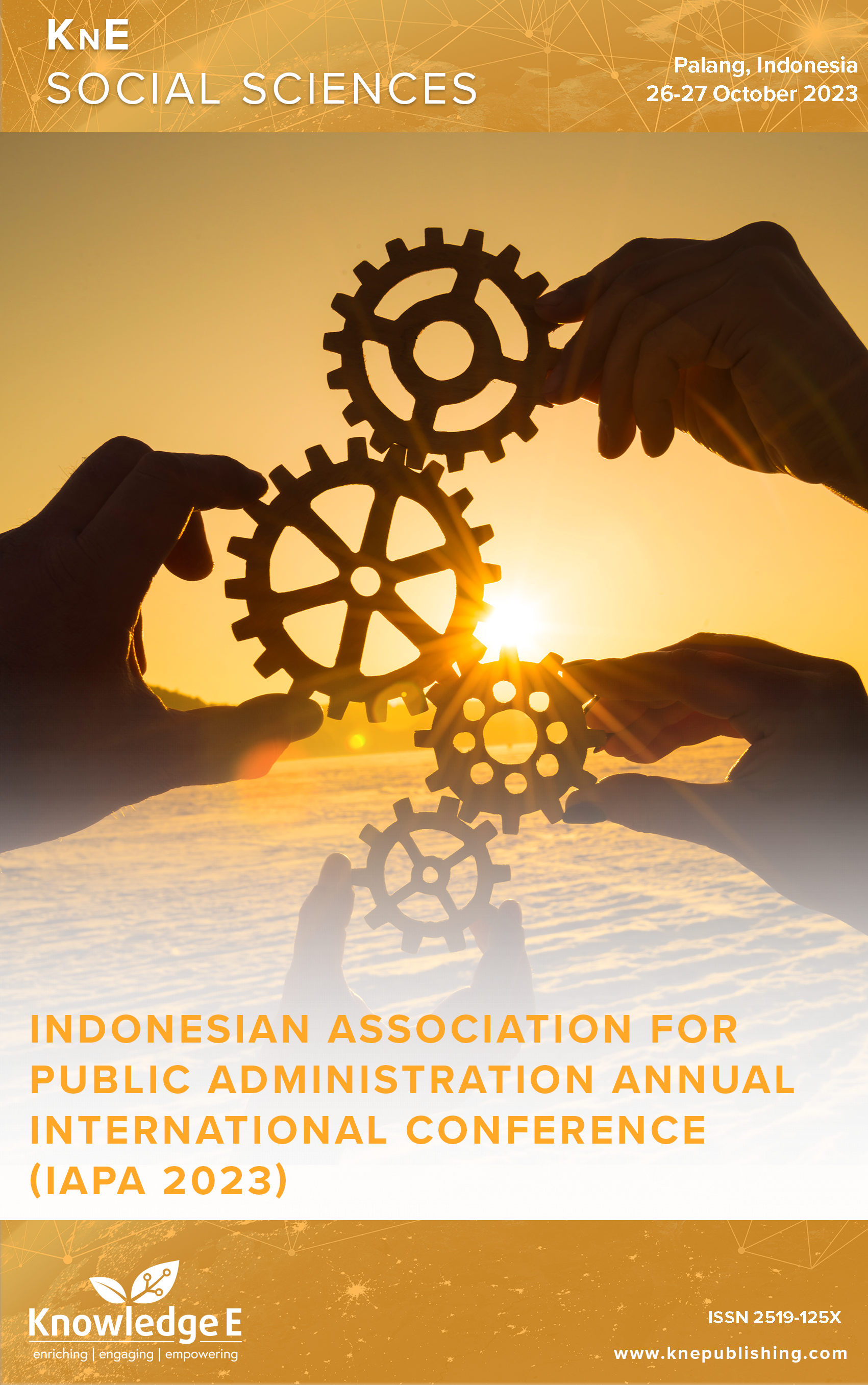Tourism Village Policy-based Local Wisdom in Developing Tourism Potential in the Pusuk Buhit Area, Samosir Regency
DOI:
https://doi.org/10.18502/kss.v9i7.15534Abstract
The Pusuk Buhit area has historical value for the development of Lake Toba tourism, especially Samosir as the birthplace of the Batak tribe. The historical and cultural potential are the main reasons for developing a tourism village based on local wisdom through good tourism governance. Cultural preservation is an advantage in developing tourism villages based on local wisdom in the Pusuk Buhit area, so special regulations are needed on the development of tourism villages based on local wisdom in Samosir Regency as well as collaboration with various parties for good tourism governance. The method used in this study is a qualitative approach, which aims to identify and classify the tourism potential of the Pusuk Buhit area which is included in the category of tourist village so that it can easily be developed. The results of the study show that integrated collaboration and tourism policy are the main priorities that must be implemented in tourism governance in the development of tourism villages based on local wisdom and also as one of the strengthening factor in increasing regional income in the tourism sector.
Keywords: tourism policy, local wisdom, governance
References
Hajar S. (2019) Governance of Tourism Village Based on Local Wisdom: In Islamic Perspective. Journal of Islamic, Social, Economic and Development ( JISED), 4 (24), 38-43
Yoeti. Oka A. (2016). Perencanaan dan Pengembangan Pariwisata. Jakarta; Nalai Pustaka
Judisseno KR. Aktivitas dan Kompleksitas Kepariwisataan (Mengkaji Kebijakan Pembangunan Kepariwisataan). Jakarta: Gramedia Pustaka Utama; 2017.
Åberg KG. Regional tourism organizations from management to marketing to knowledge-based development. J Teach Travel Tour. 2020;:1–5.
Airey D, Ruhanen L. Tourism Policy-Making in Australia: A National and State Perspective. Tour Plan Dev. 2014;11(2):149–62. DOI: https://doi.org/10.1080/21568316.2013.864991
Creswell JW. (2014). Research Design Qualitative, Quantitative and Mixed Methods Approaches (Third Edit).
Sedarmayanti. (2013). Reformasi Administrasi Publik, Reformasi Birokrasi, dan Kepemimpinan Masa Depan (Mewujudkan Pelayanan Prima dan Kepemerintahan yang Baik). Bandung: Refika Aditama
Sunaryo B. Kebijakan Pembangunan Destinasi Pariwisata (Konsep dan Aplikasinya di Indonesia). Yogyakarta: Gava Media; 2013.
Khairani L. (2022) In the Light of Cultural Studies, the Contest of Javanese Deli Cultural Identity vs. Local Culture. InInternational Conference on Communication, Policy and Social Science (InCCluSi 2022) (pp. 87-92). Atlantis Press. DOI: https://doi.org/10.2991/978-2-494069-07-7_11
Hernanda DW. (2018). Pemberdayaan Masyarakat Berbasis Good Tourism Governance dalam Pengembangan Destinasi Wisata (Studi Kasus Destinasi Wisata, Penyangga Zona Kawah Ijen “Kampung Kopi” Kelurahan Gombang Sari Kecamatan Kalipuro Kabupaten Banyuwangi: Thesis, Fakultas Ilmu Administrasi; Universitas Brawijaya.
Wood, Megan E. (2002). Meeting The Global Challenge of Community Participation In Ecotourism: Case Studies and Lessons From Ecuador. Tourism & Protected Areas Publication Series, Tanpa Kota: Alex C Walker Foundation & USAID.
Guo Z, Sun L. The planning, development and management of tourism: the case of Dangjia, an ancient village in China. Tour Manage. 2016;56:52–62. DOI: https://doi.org/10.1016/j.tourman.2016.03.017
Hübner A, Phong LT, Châu TS. Good governance and tourism development in protected areas: The case of Phong Nha-Ke Bang National Park, central Vietnam. Koedoe. 2014;56(2): https://doi.org/10.4102/koedoe.v56i2.1146. DOI: https://doi.org/10.4102/koedoe.v56i2.1146
Tanjung IS, Yenni E. (2023) Bumdes Bangun Mandiri Communication Strategy in Developing Villages Based on Local Wisdom in Bekiung Village. International Journal of Health, Economics, and Social Sciences (IJHESS) Jul 5;5(3):204-9. DOI: https://doi.org/10.56338/ijhess.v5i3.3787
Hall M. C. (2008). Tourism Planning: Policies, Processes and Relationship: Second Edition. England; British Library Cataloguing In-Publication Data.
Borges M, Eusébio C, Carvalho N. Governance for sustainable tourism: A review and directions for future research. Eur J Tour Res. 2014;7(1):45–56. DOI: https://doi.org/10.54055/ejtr.v7i.139
Cole S. Space Tourism: Prospect, Posyioning and Planning
[Emerald Group Publishing Limited.]. Journal of Tourism Futures. 2015;1(2):130–40.
Hajar, S dan Lubis, S, F. (2021) Membangun Daerah Dalam Perspektif Makro dan Mikro: Implementasi Kebijakan PNPM Mandiri Pariwisata Melalui Desa Wisata Terhadap Pengembangan Potensi Pariwisata di Kabupaten Mandailing Natal. UNISMA Press; Malang
Nuryanti W. Concept, Perspective and Challenges, Makalah Bagian Dari Laporan Konferensi Internasional Mengenai Pariwisata Budaya. Yogyakarta: Gadjah Mada University Press; 1993.
Ariesta S. A, P, I dan Widiantara, Bagus, A G I. (2020) Identifikasi Aspek Hukum Dalam Mengembangkan Desa Wisata (Studi Kasus di Kabupaten Badung Bali). Jurnal Manajemen Pelayanan Hotel; Volume 4, No. 1 Edisi Juni 2020 Hal; 27 -32; Akademi Komunitas Manajemen Perhotelan Indonesia: Bali DOI: https://doi.org/10.37484/jmph.040104
Pitana, I Gede dan Diarta, I Ketut Surya Diarta. (2009). Pengantar Ilmu Pariwisata. Yogyakarta; ANDI

